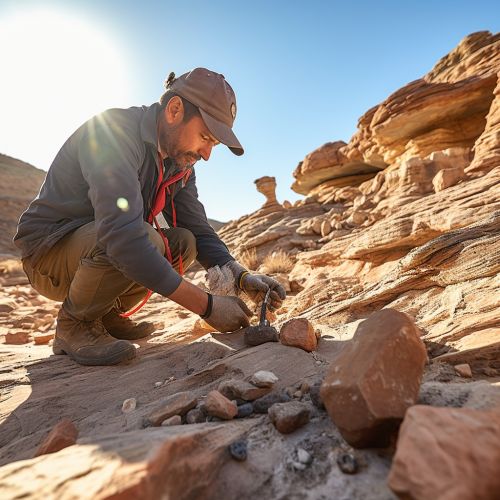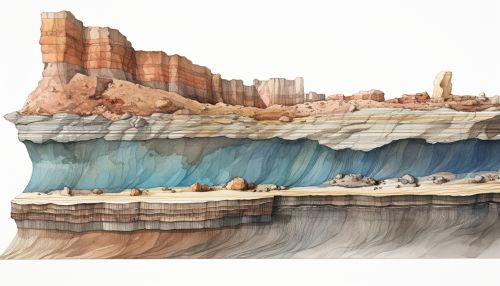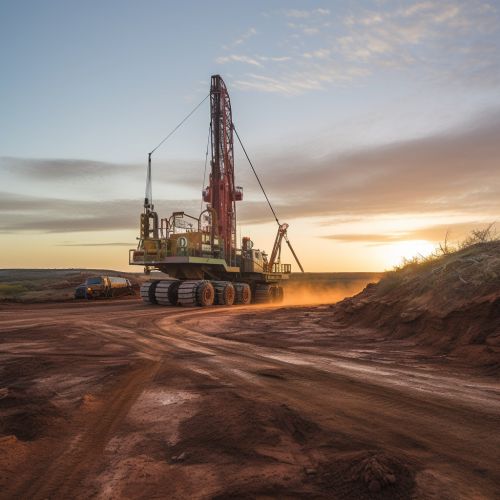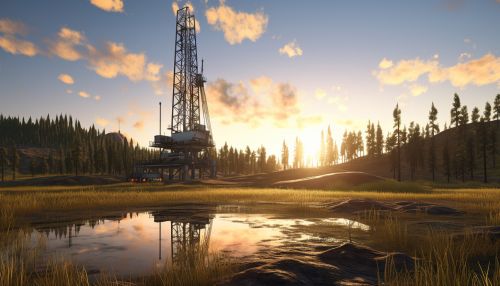The Role of Geology in Natural Resource Exploration
Introduction
Geology plays a pivotal role in the exploration of natural resources. It provides the fundamental understanding of the Earth's structure, the processes that have shaped it, and the materials that it is composed of. This knowledge is crucial in the search for and extraction of natural resources such as minerals, fossil fuels, and groundwater. This article delves into the intricate relationship between geology and natural resource exploration, shedding light on the various geological methods and techniques employed in the field.


Geological Concepts in Resource Exploration
The exploration of natural resources is underpinned by several key geological concepts. These include the theory of plate tectonics, the rock cycle, and the principles of stratigraphy.
Plate Tectonics
The theory of plate tectonics is central to understanding the distribution of many natural resources. This theory posits that the Earth's lithosphere is broken up into several large and small plates that move relative to each other. The movement of these plates can lead to the formation of various geological features such as mountains, volcanoes, and oceanic trenches, which can be rich in natural resources.


Rock Cycle
The rock cycle is another fundamental concept in geology that has significant implications for natural resource exploration. It describes the transformation of rocks from one type to another over geologic time. For instance, sedimentary rocks, which often contain valuable resources such as oil and gas, are formed from the compaction and cementation of sediment. Understanding the rock cycle can therefore aid in the prediction and location of these resources.
Stratigraphy
Stratigraphy is the study of rock layers (strata) and their relationship to each other. It is particularly important in the exploration of fossil fuels, as these resources are often found in specific strata. Stratigraphic principles such as the law of superposition and the principle of original horizontality can help geologists determine the age and orientation of rock layers, aiding in the search for natural resources.


Geological Exploration Techniques
Various geological techniques are employed in the exploration of natural resources. These include geophysical methods, geochemical techniques, and drilling.
Geophysical Methods
Geophysical methods involve the measurement of physical properties of the Earth to detect anomalies that may indicate the presence of natural resources. These methods can include seismic surveys, gravity surveys, magnetic surveys, and electrical resistivity surveys. For instance, seismic surveys, which measure the time it takes for seismic waves to travel through the Earth and reflect back to the surface, are commonly used in the exploration of oil and gas.


Geochemical Techniques
Geochemical techniques involve the analysis of the chemical composition of rocks, soil, water, or air to detect anomalies that may indicate the presence of natural resources. These techniques can include soil sampling, stream sediment sampling, and the analysis of drill cuttings or core samples. Geochemical techniques can be particularly useful in the exploration of minerals, as different minerals have distinct chemical signatures.
Drilling
Drilling is a direct method of exploration that involves the extraction of rock samples from the Earth for further analysis. It is often used in the later stages of exploration, once potential resource locations have been identified through geophysical or geochemical methods. Drilling can provide valuable information about the type, quantity, and quality of resources present.


Impact of Geology on Resource Management
The role of geology in natural resource exploration extends beyond the initial discovery of resources. It also has significant implications for resource management, influencing decisions about resource extraction, conservation, and environmental protection.
Resource Extraction
Geological knowledge can inform the methods used for resource extraction. For instance, understanding the geology of an oil reservoir can help determine the most efficient and effective extraction techniques, potentially reducing costs and environmental impacts.
Conservation
Geology can also inform conservation efforts. For example, understanding the geological processes that lead to the formation of certain minerals can help predict their future availability and inform strategies for their conservation.
Environmental Protection
Finally, geology can play a crucial role in environmental protection. Understanding the geological context of a resource can help predict and mitigate potential environmental impacts of its extraction, such as groundwater contamination or land subsidence.


Conclusion
Geology is integral to the exploration and management of natural resources. It provides the foundational knowledge needed to locate and extract resources efficiently and sustainably, and to mitigate potential environmental impacts. As our demand for natural resources continues to grow, the role of geology in their exploration and management is likely to become increasingly important.
